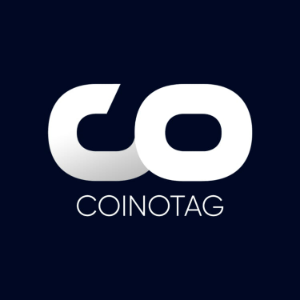Market Pulse
Binance, the world’s largest cryptocurrency exchange by trading volume, finds itself once again under intense regulatory scrutiny, this time in France. The Autorité de Contrôle Prudentiel et de Résolution (ACPR), France’s financial regulatory body, has reportedly launched a probe into the exchange’s operations. This development casts a shadow over Binance’s aspirations for a comprehensive license under the forthcoming Markets in Crypto-Assets (MiCA) regulation in Europe, potentially having significant repercussions for its native token, BNB, and its broader European strategy.
The Nature of the French Probe
Reports indicate that the ACPR’s investigation centers on Binance’s adherence to anti-money laundering (AML) protocols and its efforts to combat illicit finance. While the specifics of the allegations remain largely undisclosed to the public, such probes typically involve meticulous examination of client onboarding processes (KYC – Know Your Customer), transaction monitoring systems, and reporting mechanisms designed to prevent financial crimes. The timing is particularly crucial as Binance has been actively seeking to establish a solid regulatory foothold across Europe ahead of MiCA’s full implementation.
- Regulatory Body: Autorité de Contrôle Prudentiel et de Résolution (ACPR)
- Key Focus: Anti-Money Laundering (AML) compliance and combating illicit finance.
- Implication: Direct impact on Binance’s ability to secure a MiCA license in France and, by extension, across the EU.
- Current Status: Binance currently holds a Digital Asset Service Provider (DASP) registration in France, which itself requires adherence to strict AML/CFT rules.
MiCA’s Significance for Binance in Europe
The Markets in Crypto-Assets (MiCA) regulation, set to fully come into force in late 2024, represents a landmark legislative framework for cryptocurrencies across the European Union. For exchanges like Binance, obtaining a MiCA license in one EU member state could theoretically enable them to operate across the entire bloc under a ‘passporting’ system, streamlining their European operations significantly. A successful MiCA application in a key market like France is therefore paramount to Binance’s long-term strategic ambitions in the region.
A regulatory probe, especially one concerning fundamental issues like AML, could severely jeopardize Binance’s MiCA licensing prospects. Regulators are keen to ensure that crypto platforms operating under MiCA are robust, transparent, and compliant with the highest standards of financial integrity. Any findings of significant non-compliance could lead to delays, penalties, or even outright rejection of a license application, forcing Binance to rethink its operational model in the EU.
Potential Impact on BNB Token
Binance Coin (BNB), the native cryptocurrency of the Binance ecosystem, often reacts sensitively to news concerning the exchange’s regulatory standing. BNB serves multiple utilities, including fee discounts on the exchange, participation in token sales on Binance Launchpad, and powering the BNB Chain. Regulatory headwinds, particularly from a major jurisdiction like France, inject uncertainty into the market, which can translate into downward price pressure.
- Investor Confidence: Regulatory uncertainty can erode investor confidence, leading to sell-offs.
- Exchange Operations: Potential restrictions or delays in European operations could reduce demand for BNB’s utility functions.
- Market Perception: Repeated regulatory challenges contribute to a perception of instability, even if the exchange asserts full cooperation.
The price stability and growth of BNB are intrinsically linked to Binance’s ability to navigate the complex global regulatory landscape successfully. A positive resolution would likely bolster BNB, while a negative outcome could trigger further volatility.
Binance’s Global Regulatory Challenges
This French probe is not an isolated incident for Binance. The exchange has faced a litany of regulatory challenges across various jurisdictions, including significant enforcement actions and fines in the United States, Netherlands, and Germany, among others. These past issues highlight the broader struggle for global crypto exchanges to comply with a patchwork of evolving and often stringent national regulations. Binance has repeatedly stated its commitment to working with regulators to achieve compliance, dedicating substantial resources to its legal and compliance teams. However, each new probe underscores the persistent difficulties in aligning a decentralized global business model with traditional financial oversight.
Conclusion
The regulatory probe initiated by France’s ACPR against Binance marks another critical juncture for the leading crypto exchange. Its outcome will not only determine Binance’s immediate operational future in a vital European market but also serve as a barometer for how global regulators intend to enforce comprehensive frameworks like MiCA. For BNB holders and the wider crypto market, the resolution of this investigation will be keenly watched, as it underscores the continuing tension between innovation and stringent financial oversight in the rapidly evolving digital asset space.
Pros (Bullish Points)
- A clear resolution of the probe, if positive, could strengthen Binance's regulatory standing and market confidence in Europe.
- Increased regulatory scrutiny could push Binance to enhance compliance, setting a higher standard for the industry.
Cons (Bearish Points)
- Regulatory uncertainty from a major European market could lead to further price volatility for the BNB token.
- A negative outcome could jeopardize Binance's MiCA licensing, potentially restricting its European market access.



